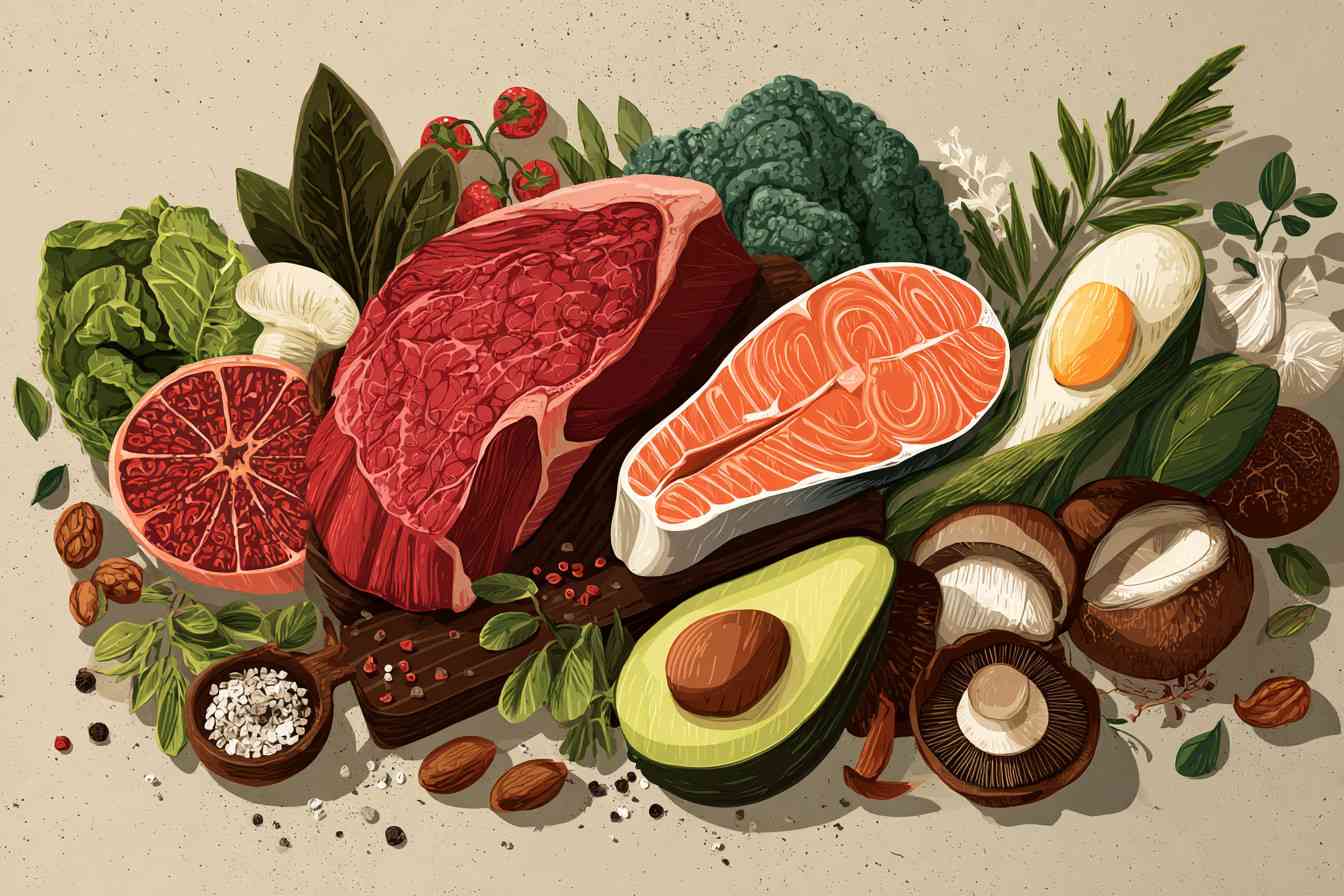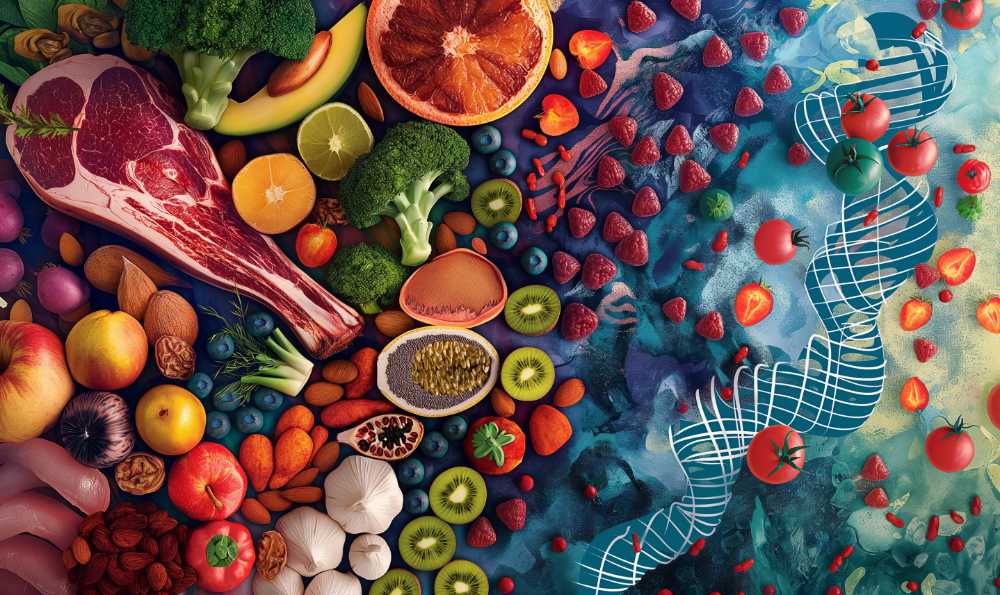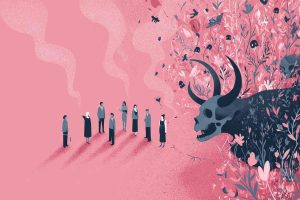People need natural protein: why the “protein transition” is unnecessary and artificial substitutes are harmful

A misguided crusade against meat
In recent years, governments, NGOs, and multinational food corporations have heavily promoted a so-called “protein transition”, a societal shift away from animal products toward plant-based or synthetic alternatives. This transition, often presented as essential for health and the environment, is increasingly shaping public policy and food industry investment. But behind the glossy slogans and emotional marketing lies a striking absence of honest science.
Human beings have consumed meat for hundreds of thousands of years. Meat is not a modern luxury, nor a dietary flaw; it is a foundational part of our evolution. The idea that humanity must now abandon one of its most nutrient-dense and biologically compatible food sources in favor of lab-engineered products represents a profound distortion of nutritional science. It is not a move toward progress but a regression into industrial dependency.
Meat as a cornerstone of human evolution
Anthropological evidence overwhelmingly supports that the expansion of the human brain and the development of modern Homo sapiens were directly tied to the regular consumption of animal foods, particularly red meat. Fossil and isotopic studies show that early humans were apex predators for most of evolutionary history (The evolution of the human diet: the known, the unknown, and the unknowable, Ungar).
Meat provided not only dense calories but also complete amino acids, heme iron, vitamin B12, zinc, selenium, and long-chain omega-3 fatty acids, nutrients either absent or poorly bioavailable in plant foods. The neurological and physiological development of Homo erectus and later Homo sapiens coincided with the increased use of animal protein and fat. This evolutionary adaptation explains why the human digestive system is optimized for nutrient absorption from animal sources (Man the Fat Hunter, Speth).
To deny the biological role of meat is to deny the very foundation of human biology. The contemporary narrative that meat is inherently harmful is a modern ideological construct, not a scientific one.
Nutrient density and bioavailability
One of the strongest arguments in favor of meat is its nutrient density and bioavailability. While plant-based foods contain nutrients in smaller quantities, many of these are locked behind anti-nutrients such as phytates, lectins, and oxalates, which inhibit mineral absorption. Meat, by contrast, provides nutrients in a form the human body can efficiently use.
For example, heme iron from meat is absorbed up to four times more effectively than non-heme iron from plants. Similarly, vitamin A from animal sources (retinol) is directly usable by the body, while plant-based carotenoids require conversion, which is inefficient in many individuals (The importance of animal source foods for nutrient sufficiency in the developing world, Neumann).
The same applies to vitamin B12, creatine, taurine, and carnosine, which are either absent or negligible in plant foods but vital for energy metabolism and neurological function. The growing number of ex-vegans who report serious health issues such as anemia, fatigue, or cognitive decline after years on restrictive diets confirms what biochemistry already tells us: animal foods are essential.
The myth of meat and chronic disease
One of the main pillars of anti-meat campaigns is the alleged link between meat and chronic diseases like heart disease, cancer, and diabetes. Yet, when examined critically, these claims collapse under scrutiny.
Much of the evidence comes from epidemiological studies that cannot establish causation. They rely on food frequency questionnaires and often fail to distinguish between processed meats consumed with refined carbohydrates and whole, unprocessed red meat as part of a balanced diet. Large randomized controlled trials have found no convincing evidence that red meat in moderate quantities increases mortality (Unprocessed Red Meat and Processed Meat Consumption and Risk of Coronary Heart Disease and Diabetes Mellitus: A Systematic Review and Meta-Analysis, Micha).
Furthermore, cultures known for longevity, such as the Japanese and the French, include moderate amounts of meat in their diets. The French Paradox, the observation that France has low rates of heart disease despite high consumption of saturated fats, directly contradicts mainstream anti-meat propaganda (The French Paradox: A Cultural Perspective, Renaud).
The demonization of meat largely stems from mid-20th century dietary guidelines influenced by weak epidemiological data and the industrial food lobby’s interest in promoting cheap, plant-based oils and processed grains.
The real harm: industrial and artificial replacements
While traditional meat is under attack, the market for “alternative proteins” is booming. Companies like Beyond Meat and Impossible Foods promise a “greener future” through ultra-processed imitation meats. However, a closer look reveals that these products are neither sustainable nor healthy.
Most plant-based burgers are made from highly refined ingredients like soy protein isolate, pea protein concentrate, seed oils, flavor enhancers, and synthetic vitamins. They are ultra-processed foods by definition. Studies consistently show that diets high in ultra-processed foods correlate with obesity, metabolic disorders, and cardiovascular disease (Ultra-Processed Foods, Diet Quality, and Health Using the NOVA Classification System, Monteiro).
Moreover, these artificial products often rely on monoculture crops, heavy pesticide use, and industrial supply chains that are anything but environmentally friendly. Producing and processing plant proteins require significant energy, transportation, and chemical inputs. The idea that such products are a sustainable alternative is an illusion crafted for profit, not planetary health.
Lab-grown meat: science fiction meets corporate control
Lab-grown or “cultivated” meat is another frontier of the so-called protein transition. Marketed as a cruelty-free innovation, it raises significant ethical, economic, and biological concerns.
First, the production process is far from natural. Cultivated meat requires animal stem cells grown in bioreactors using growth media that often include fetal bovine serum, ironically, derived from slaughtered animals. Scaling this process demands enormous energy and chemical inputs, making it questionable from an environmental standpoint (Environmental Impacts of Cultured Meat Production, Lynch).
Second, lab-grown meat centralizes food production into the hands of a few high-tech corporations. Traditional livestock farming, for all its faults, supports millions of small farmers and rural communities worldwide. A transition to lab-grown products would replace decentralized, living ecosystems with industrial labs controlled by multinational investors. It is the perfect scenario for corporate monopolization of the food chain, not a step toward sustainability, but toward dependency.
Sustainability and the ecological fallacy
One of the most persistent myths used to justify the protein transition is that livestock farming is inherently unsustainable. Yet this argument often cherry-picks data from industrial feedlot systems while ignoring regenerative and mixed farming models that restore soil health and biodiversity.
Properly managed grazing systems can sequester carbon, enhance water retention, and increase soil fertility. Studies show that ruminants on regenerative pastures can have a net neutral or even net negative carbon footprint (Soil carbon sequestration and the mitigation of greenhouse gas emissions by grazing systems, Conant).
Additionally, vast areas of land unsuitable for crops can support livestock, converting inedible grass into nutrient-rich food. The idea that we could simply replace meat with plant-based products ignores these ecological realities. In truth, livestock are integral to nutrient cycling and landscape management. Eliminating them would increase reliance on synthetic fertilizers and monocultures, both major drivers of environmental degradation.
The ideological roots of the protein transition
The push for a protein transition is not driven solely by science but by ideology and profit. It aligns with broader globalist agendas that seek to centralize food production and control consumption patterns. International organizations such as the World Economic Forum and the United Nations promote “sustainable diets” that conveniently coincide with the business interests of corporations invested in synthetic food technologies (The Global Redesign Initiative, Schwab).
The narrative frames traditional diets as backward and unsustainable, while high-tech, patented foods are presented as the future. This reframing benefits financial elites and investors, not ordinary people. It also erodes cultural food traditions, many of which are built around animal husbandry and local agriculture.
The demonization of meat is, therefore, part of a broader ideological and economic transformation, a shift from natural ecosystems and human-scale farming toward digitalized, corporate-controlled systems of production.
The nutritional and psychological cost of fake food
Beyond the biochemical issues, artificial food products carry profound psychological and social costs. Eating is not merely a biological act but a cultural and emotional one. Traditional cuisines, rituals, and social practices revolve around real food, food that connects people to nature and to each other.
Replacing these with sterile, industrially engineered substitutes breaks that connection. The sensory and cultural richness of real food cannot be replicated in a laboratory. As studies in food psychology show, people derive satisfaction not only from flavor but from authenticity, craftsmanship, and trust in the natural origin of what they consume (The Psychology of Food Choice, Shepherd).
Artificial food systems, in contrast, reduce eating to a technocratic transaction. They transform nourishment into a corporate product, alienating people from the natural cycles that sustain life. In the long run, this cultural disconnection may prove as damaging as the nutritional deficiencies it causes.
The propaganda of guilt
Much of the rhetoric around meat consumption is built on guilt. Citizens are told they are destroying the planet by eating steak, that their dietary habits are unethical and environmentally destructive. This moralization of diet has become a powerful psychological tool for social engineering.
However, the same voices urging people to abandon meat rarely address the environmental cost of aviation, luxury consumption, or industrial waste, sectors far more responsible for ecological harm. The focus on personal dietary guilt diverts attention from systemic issues, shifting responsibility away from corporations and political elites toward individuals.
Moreover, meat-eating has become a symbol of resistance against enforced conformity. The demonization of animal foods mirrors broader attempts to dictate personal behavior through moral coercion. It is not just a debate about diet but about autonomy, culture, and freedom.
A rational path forward
The solution to modern health and environmental challenges does not lie in rejecting meat but in rethinking how it is produced. Industrial feedlots and factory farms should indeed be reformed, but that does not justify abolishing animal agriculture altogether.
Local, pasture-based systems, rotational grazing, and small-scale mixed farming offer a sustainable model that maintains ecological balance while providing nutritious food. Supporting traditional farmers and regenerative practices strengthens both communities and ecosystems.
Public policy should focus on transparency, soil restoration, and local production, not on subsidizing synthetic foods and corporate patents. The real transition humanity needs is not a “protein transition” but a power transition, from centralized corporate food systems back to human-scale, natural agriculture.
Conclusion: returning to real food
The campaign to replace meat with artificial substitutes represents a dangerous experiment in social engineering and corporate control. It is not about health or sustainability but about profit and power. Meat, when responsibly produced, remains one of the most nutrient-dense and evolutionarily appropriate foods available to humanity.
Abandoning it in favor of ultra-processed, laboratory-created products is not progress but decline. True sustainability lies in balance, not in technocratic manipulation. The future of food should not be dictated by corporations that see the human diet as a market to be captured, but by communities that understand food as a living connection between people, animals, and the earth.
The human body, mind, and culture evolved with meat. To sever that bond is to sever part of what makes us human.


















